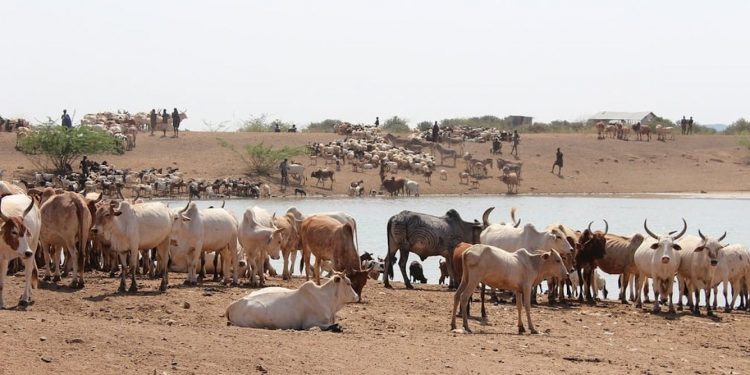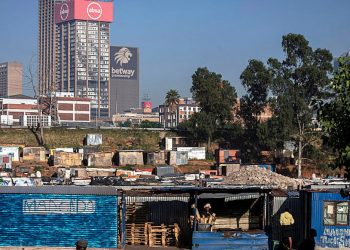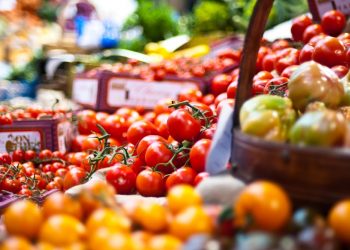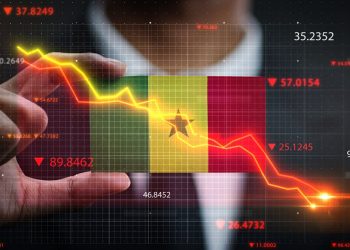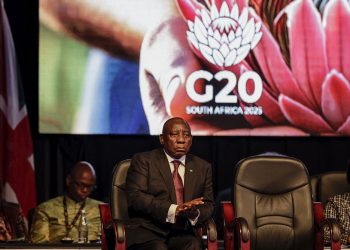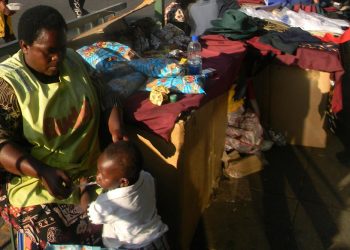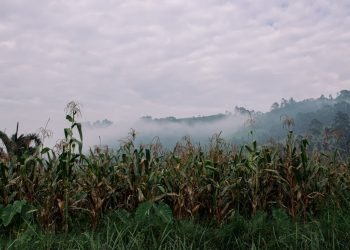A decade ago countries in West Africa set up a unique trade monitoring mechanism. Its purpose was to track intra-regional trade in agricultural products and livestock in the region. But the system was closed down in 2022 due to a lack of funding by regional organisations.
The mechanism provided West African countries with data from more than 320 markets and along 10 corridors, enabling the tracking of not only trade patterns but livestock and zoonotic diseases.
The lack of up-to-date trade data has a number of knock-on effects. Detailed intra-trade data are essential to help assess the impact of external shocks that can significantly affect food security and economic development. These include political crises, extreme weather events, currency devaluation, or epidemics.
Good data is also essential for mapping trade networks. In turn, this can strengthen market information systems and disease surveillance efforts. These rely heavily on the movement of goods, people, livestock and capital across the region.
Using data collected by the Permanent Interstate Committee for Drought Control in the Sahel from 2013 to 2017, researchers show the importance of considering the social structure of trade networks, their geography and temporal changes.
The social structure of trade networks could better inform market information systems and disease surveillance, both of which rely heavily on the movement of goods, people, livestock and capital across the region
They conclude that regional bodies should support the resumption of trade data collection. They should also foster dialogue with national statistical offices and other national institutions that have experience in collecting data on informal regional food trade to work towards a coherent regional statistical approach.
A unique database on the regional economy
In West Africa, agricultural goods and livestock trade operates in well-established corridors. Animals, for example, flow from the Sahel to the major urban centres of the Atlantic Coast and of the Gulf of Guinea.
Our analysis of the trade data suggests that border markets play a key role in livestock trade and that a large proportion of movements are trans-boundary.
This high level of mobility facilitates the spread of livestock and zoonotic diseases. These include Rift Valley fever, Crimean-Congo haemorrhagic fever, Foot and Mouth disease, and Peste des petits ruminants. At the end of September 2025, for example, a new outbreak of Rift Valley fever was observed in Mauritania and Senegal. The two West African countries have very close ties when it comes to animal movements.
The transnational nature of trade in West Africa led to the creation of a regional database by the Permanent Interstate Committee for Drought Control in the Sahel in 2013. Data collected on more than 320 markets and along 10 corridors, from Guinea and Senegal in the west to Nigeria in the east, were unique on the African continent.
The data was particularly well suited for analysis of locally-produced food stuff and livestock at the regional level. This is because it incorporated both formal and informal trade. Both are prevalent throughout the region. Our recent work estimates informal activities could reach up to 85% of total trade, representing US$10 billion. This is six times higher than portrayed in official statistics
Filling the statistical gap
The experience of recent years and the transnational nature of trade flows suggest one key step. That being regional institutions, rather than bilateral donors, take over data collection.
Initially, the data were collected within the framework of the Permanent Interstate Committee for Drought Control in the Sahel’s Regional Support Program of Market Access. This was developed to increase the volume and value of trade within the Economic Community of West African States and the West African Economic and Monetary Union .
From 2017 to 2019, the United States Agency for International Development provided funding to establish the database as part of its West Africa/Regional Agriculture Office. The data was eventually integrated to the ECOWAS Informal Cross Border Trade database. This was developed to monitor informal cross-border trade in the region in 2019.
The United States Agency for International Development programme ended in 2019. After this, data collection was transferred to the Family Farming, Regional Markets and Cross-Border Trade Corridors in the Sahel project. Launched in 2020, its aim was to develop a sustainable and self-financed means of collecting reliable data on agricultural and food trade in West Africa.
Funding for these activities was provided by the International Fund for Agricultural Development. It was locally managed by the West African Association for Cross-Border Trade in Agro-forestry-pastoral and Fisheries Products, based in Togo.
This initiative, covering 17 countries unfortunately came to an end in 2022 (agricultural products) and 2024 (livestock).
The cessation of this funding has had dire effects. It profoundly affected researchers’ ability to measure the impact of structural and political changes affecting the region. For example, it is still impossible to measure the extent to which the closure of certain borders following successive coups in Mali, Burkina Faso, and Niger in recent years has affected the trade networks linking the Sahel to the Gulf of Guinea.
Better data to monitor trade and animal diseases
Re-establishing a permanent data collection system by supporting local associations such as the West African Association for Cross-Border Trade in Agro-forestry-pastoral and Fisheries Products is one of the essential steps for policymakers wishing to strengthen the region’s resilience.
The World Animal Health Organisation’s International Animal Health Code has suggested centralising livestock mobility data. This could be a starting point. It is the most efficient way to prevent and respond to transnational disease spread through trade.
Accurate, timely and centralised data collection could help identify possible hotspots and reconstruct transmission patterns. It could also develop control measures and alert systems to protect unaffected areas.
Beyond disease control, resuming the collection of data on intra-regional trade would also contribute to design policies that support the adaptation of regional economy to new climate conditions and political unrest. Better trade data on West Africa’s informal sector could unlock climate adaptation finance by highlighting its real value.
For instance, in one of our latest reports, we estimate that regional livestock exports for Mali, Niger and Burkina Faso are likely to be close to USD 1 billion when counting unrecorded trade, against USD 80 million in official statistics.
The research for this article was carried out in conjunction with Mr. Brahima Cissé who coordinates the Regional Markets program at the Economic Community of West African States in Togo; Dr. Alban Masaparisi, an economist specialising in food systems transformation and agricultural policy at the OECD Sahel and West Africa Club, France and Mr. Koffi Zougbede, an economist working on food systems at the OECD Sahel and West Africa Club, France.__
Olivier Walther receives funding from the OECD.
Andrea Apolloni and Lacey Harris-Coble do not work for, consult, own shares in or receive funding from any company or organisation that would benefit from this article, and have disclosed no relevant affiliations beyond their academic appointment.

